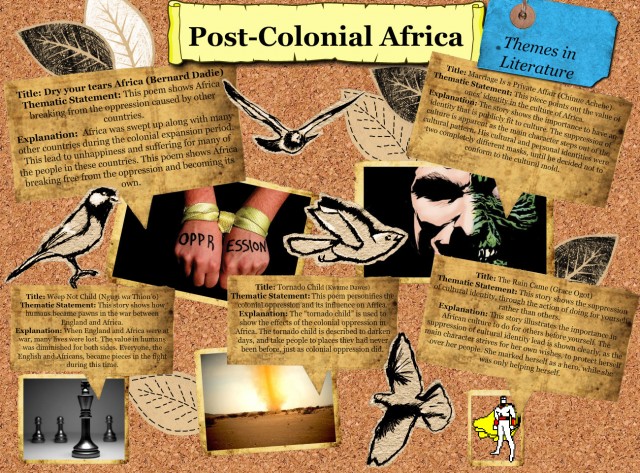Postcolonial Africa
The phrase, 'postcolonial Africa' is literally a reference to the continent in the period after the end of European colonialism. However, the usage of the phrase in this sense is actually inadequate, because the autonomy of African states is so circumscribed and the legacies of colonialism so great as to lead many to question how far African countries can be considered to be 'post' – (as in past) – colonialism. Two other uses of the phrase, postcolonial Africa, are worthy of consideration. The first is the use of the phrase to describe the material and psychological conditions of living with the legacies of colonialism. The second is the effort to think beyond them. In this latter regard, it is worth contemplating several examples of new ways to think about Africa and Africanity that lead to reconsiderations of Africa's human geographies. The first example is the very practical example of the efforts toward African unity through the transformation of the Organization of African Unity into the African Union (AU) at the beginning of the millennium. The AU has certainly proven to be a problematic entity in its first decade, as have related efforts like the New Partnership for African Development, but they deserve mention as efforts to move the continent beyond colonized modes of thought or being. The broad rubric of 'African solutions to African problems', implicated as it often is in neoliberal visions of development not too dissimilar from structural adjustment, can nonetheless here and there be credited with genuinely realigning the way Africans think about Africa, for the better.

A second example of postcolonial rethinking of Africa leads us into contemporary discussions of and interest in the development potentiality of new African diasporas in Europe, North America, and elsewhere. As a result of the transatlantic slave trade, hundreds of millions of people of African origin came to reside in the Americas, and significant numbers of the Africans of the Americas also resettled in Europe – along with Africans who came to Europe more directly. Intellectual, cultural, political, and even economic connectivities have often been strong across the ocean separating these various parts of 'Africa outside of Africa', fueling extraordinary movements like the Harlem Renaissance and Negritude literature or philosophy, and leading to ideas of Pan Africanism and of a Black Atlantic. In African American culture (people of African origin within the United States), there have been various important reconnections with Africa, such as the movement for Afrocentricity that draws upon the writings of Senegalese intellectual Cheikh Ante Diop to articulate an alternative vision of Africa and Africans as central to human history (from what is pointedly represented as an African ancient Egypt onward).
This older diasporic Africa and its visions of Africa are now broadening and diversifying still further, as more and more Africa born people of African origin reside in the rest of the world. Newer diasporas often develop a transnational sense of themselves as both African and something else. As fluidity, flexibility, interdependence, contingency, and disjuncture have been implicit touchstones for understanding Africa from within many African cultures, so now has the very fluidity and flexibility of African ness have stretched around the globe. Transnationality can be seen as creating a 'rhizomatic' geography of Africa, like the scattered shoots of a rhizome (e.g., a strawberry plant). The challenge may lie in re collecting these shoots and runners into a coherent 'Africa', but regardless of this challenge it is certainly true that we now see many examples of new visions of Africa, or of what it means to be African. At the 2002 and 2006 FIFA World Cup in men's football, for example, players born on the African continent lined up playing for Germany, France, Portugal, Poland, Saudi Arabia, and the United States, and dozens more players with African ancestry had their pictures taken in uniforms that said Brazil, Sweden, Japan, Trinidad, or England. The third black United States Senator in modern history was raised in Hawaii and Indonesia, but he has a Kenyan father. In any case, in the 2008 US election, presidential candidate Barack Obama, like millions of African Americans, can claim dual citizenship in Ghana if he wishes. The increasingly dynamic interrelationships of Africans in Africa and global Africans continue to redefine the human geography and the potentiality of the continent everyday.